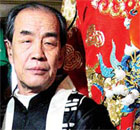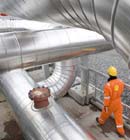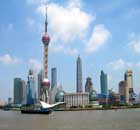Top Biz News
Change in Fed policy unlikely in the short term
By Zhou Yan (China Daily)
Updated: 2010-03-24 10:39
 |
Large Medium Small |
SHANGHAI - The Federal Reserve will maintain its accommodative monetary policy for about six months, given the high unemployment rate and contained inflationary pressure in the United States, Charles L. Evans, president of Federal Reserve Bank of Chicago, said on Tuesday.
But analysts said that China's central bank, regardless of hot money inflow concerns, will be unmoved by US decisions, and raise the interest rate this year before the US given China's mounting inflation risks.
"We will hold it (the monetary policy) for our next three to four meetings, that will be about six months. Conditions will continue to warrant the substantial policy accommodation through the end of this year," Evans said in Shanghai.
The Federal Reserve cut the main US interest rate to as low as zero for the first time since 1954 in December 2008 to counter against the worst financial crisis since the Great Depression of the 1930s.
Evans said that the federal fund rate is supporting improved economic growth prospects. "I will continue to strongly support the accommodative policies until the momentum on unemployment is coming down or rising inflationary pressure emerges," he said.
The unemployment rate in the world's largest economy was 9.7 percent in February. Evans said that the US government was seeking a figure closer to 5 percent.
"It's not a surprise if United States maintains its low interest rate throughout 2010 given its slow economic recovery pace," said Cao Huining, professor of finance at Cheung Kong Graduate School of Business, adding that it's a different story in China, where the inflation risk is picking up and substantial liquidity in the housing and equities markets needs to be curbed.
| ||||
"Hot money inflows will be difficult to tame if China raises its interest rate prior to the US, but the gradual opening of the Chinese currency to the global market will help hold back a deluge of hot money in the long-term," Cao said, projecting that China will raise the interest rate within six months.













